Moveon Technologies: From failed watch project to Dyson deal: How valuable lesson helped S’pore firm redefine its focus
First published in The Straits Times on 7 November 2023.
Having found its forte in innovation and product design, optical product maker Moveon Technologies leverages Enterprise Singapore's support to craft solutions for multinational companies like Samsung, Philips and Mercedes-Benz.
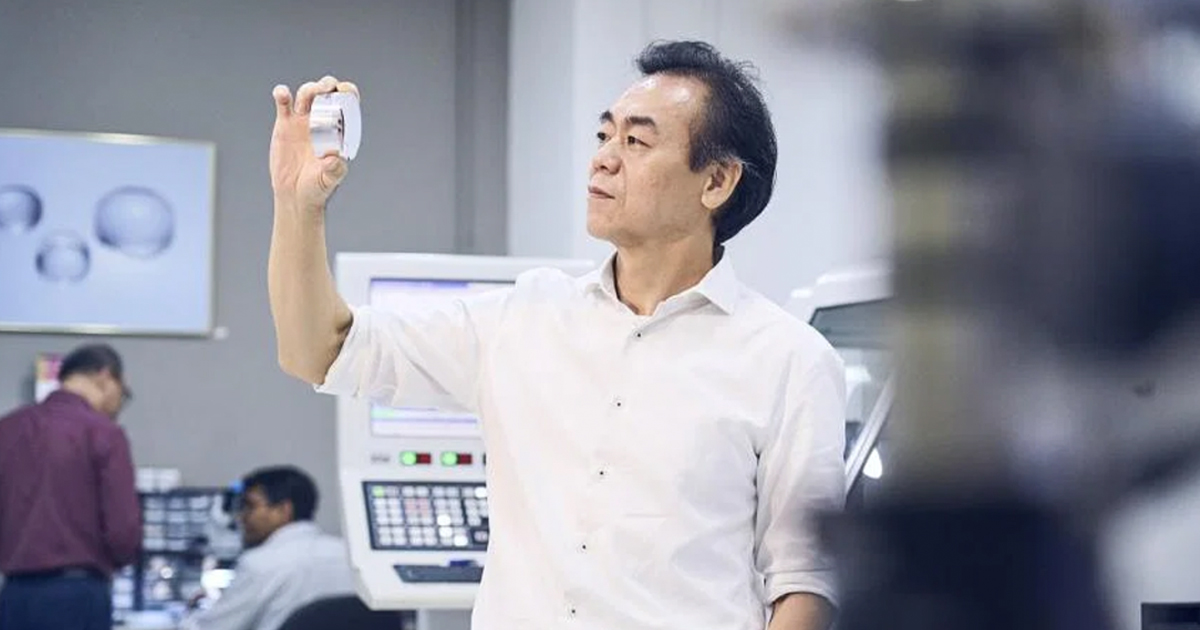
A failed attempt at selling a camera watch in 2015 may have been a setback for this Singapore company, but its innovation was recognised by consumer electronics giant Dyson.
Optical product manufacturer Moveon Technologies had first conceived an idea for a smart watch with a detachable camera – called the Beoncam – and even launched an Indiegogo campaign to introduce the watch that year. The initial wave of interest garnered about 2,300 orders, but sales stalled not long after.
Mr Chee Teck Lee, 59, the company’s founder and chief executive officer, felt that interest from consumers waned because the team lacked advertising and marketing expertise. “We couldn’t make it work,” he says. “So we stopped offering the camera after a year.”
Although the firm discontinued the camera watch, it garnered the attention of Dyson, which now incorporates Moveon’s camera in its smart vacuum cleaners. The compact, 360-degree cata-fisheye lens captures panoramic videos and images that enable the vacuum cleaners to make sense of its surroundings and navigate complex paths.
“Dyson was looking for a supplier who could not only design a customised camera but also ensure the design could be produced in high volume,” explains Mr Chee. “The company chose us because we could offer full-suite, one-stop shop solutions.”
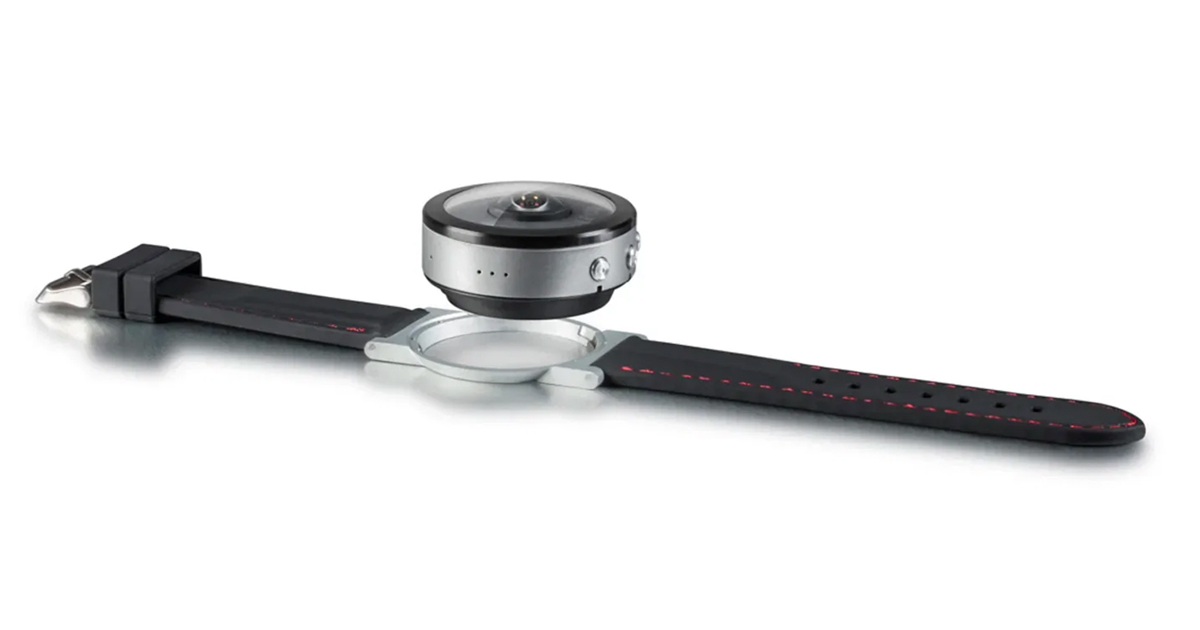
The experience taught him an invaluable lesson. While Moveon, first started as a seven-man outfit by Mr Chee in 2007, might not be well versed in the branding aspects of business, it proved to be an arbiter of product design. It is also more than capable of offering its services to collaborators and partners who could help scale its business.
This realisation has driven the 200-strong company to stay focused on its forte, earning it over $20 million in annual revenue in its 12th year. Today, Moveon also supplies components to multinational companies including Samsung, Philips and Mercedes-Benz.
For new opportunities, Mr Chee is grateful for Enterprise Singapore’s (EnterpriseSG) extensive network, which has enabled Moveon to connect with other companies through networking sessions, start-up pitch and demonstration days, entrepreneur roundtables and other events.
“EnterpriseSG is very good at bringing like-minded people together to open up new business opportunities,” says Mr Chee.
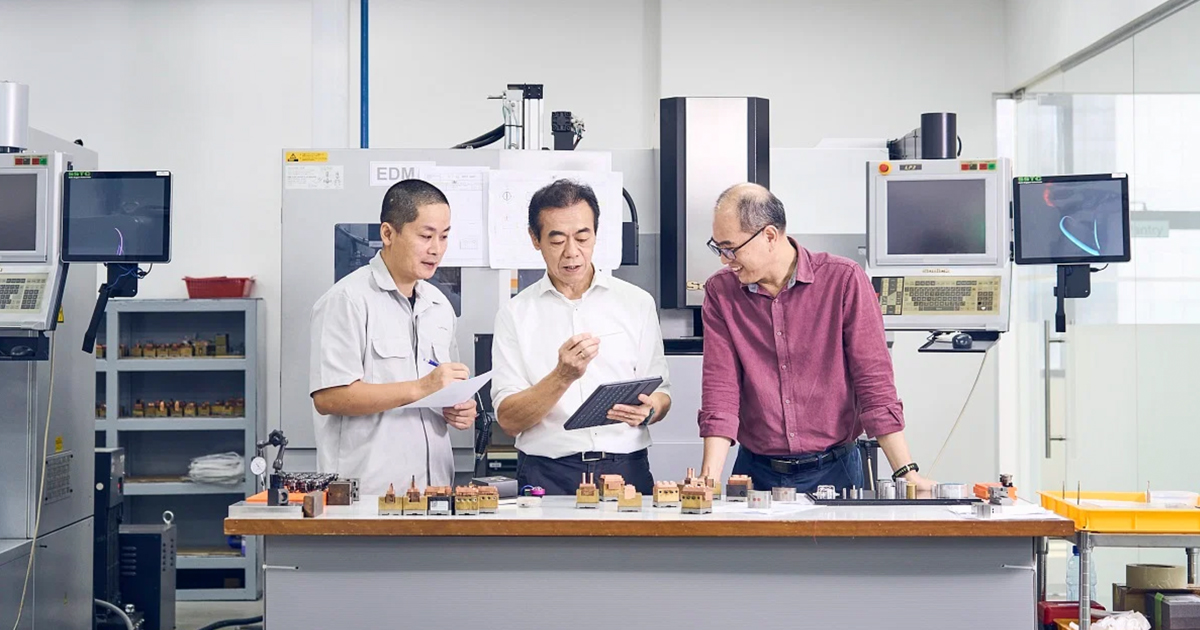
Just recently in August, EnterpriseSG linked Moveon to materials engineering firm Applied Materials. “We’ve discussed projects related to micro elements,” he shares. “Hopefully we will get to collaborate on the development of new processes in the near future.”
EnterpriseSG’s role in Moveon’s growth goes beyond networking and collaborations. The agency’s support over the years has extended to Moveon’s recent digitalisation drive, enabling the installation of new equipment, automation of tool fabrication processes, and the creation of a state-of-the-art, highly automated and digitalised Ultra Precision Machining Centre (UPMC).
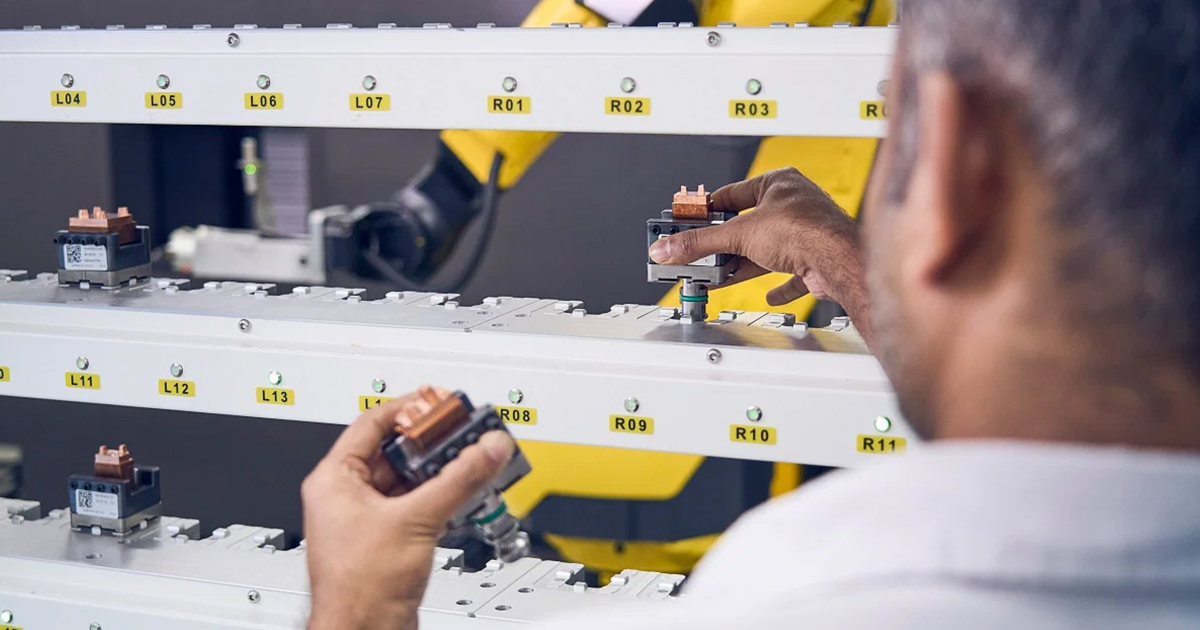
Since establishing the UPMC, Moveon has been able to run operations such as computer numerical control (CNC) milling – a precision machining process directed by computerised controls – continuously with fewer disruptions, boosting productivity by over 30 per cent.
“EnterpriseSG has helped us tremendously, having played an important role in the scaling-up of many local firms like ours,” says Mr Chee. “Its reach to industries, technologies and markets is formidable. By leveraging its network, branding, knowledge and access, businesses can gain opportunities that would otherwise require them to spend significant resources.”
Taking the path less trodden
While fellow competitors are focused on developing metalenses for the next generation of electronic devices, Moveon has carved a niche in nanofabrication – the making of components so small that they are not visible to the naked eye – which is a closely guarded secret within the industry.
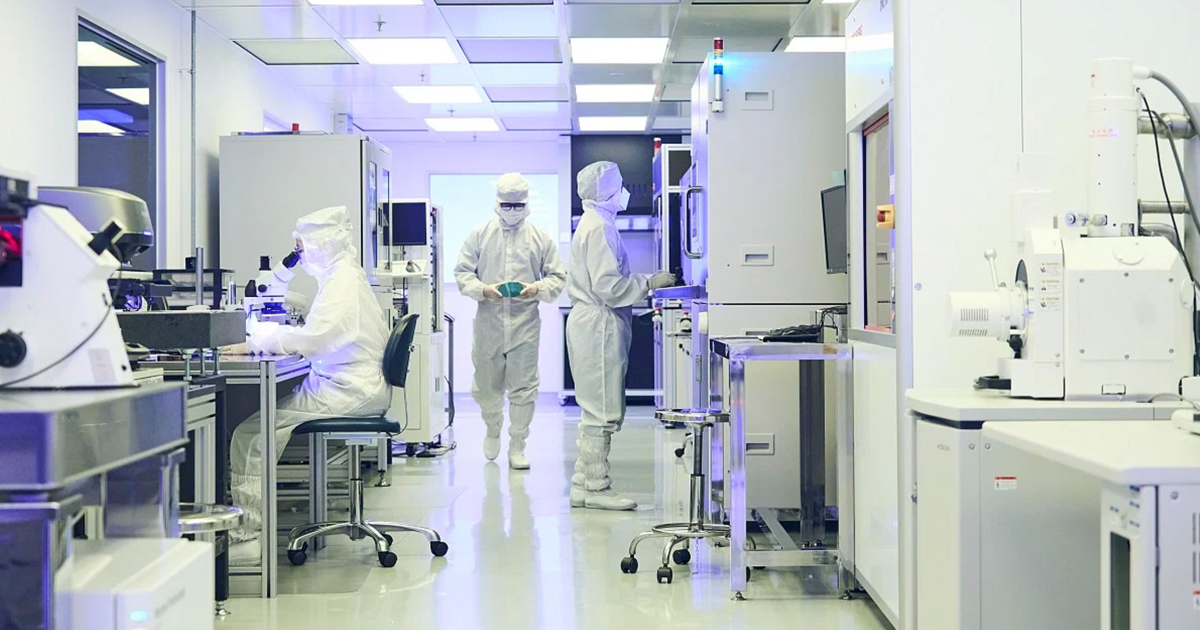
Its pivotal shift into nanofabrication in 2015 came after a new process engineer, fresh from university research, highlighted its potential amid the growing use of sensors produced through this method. Recognising an opportunity even with limited prior knowledge, Moveon decided take a risk and invest.
“We didn’t know much about it but saw the potential,” says Mr Chee. “More electronics were using sensors that had to be made through nanofabrication.”
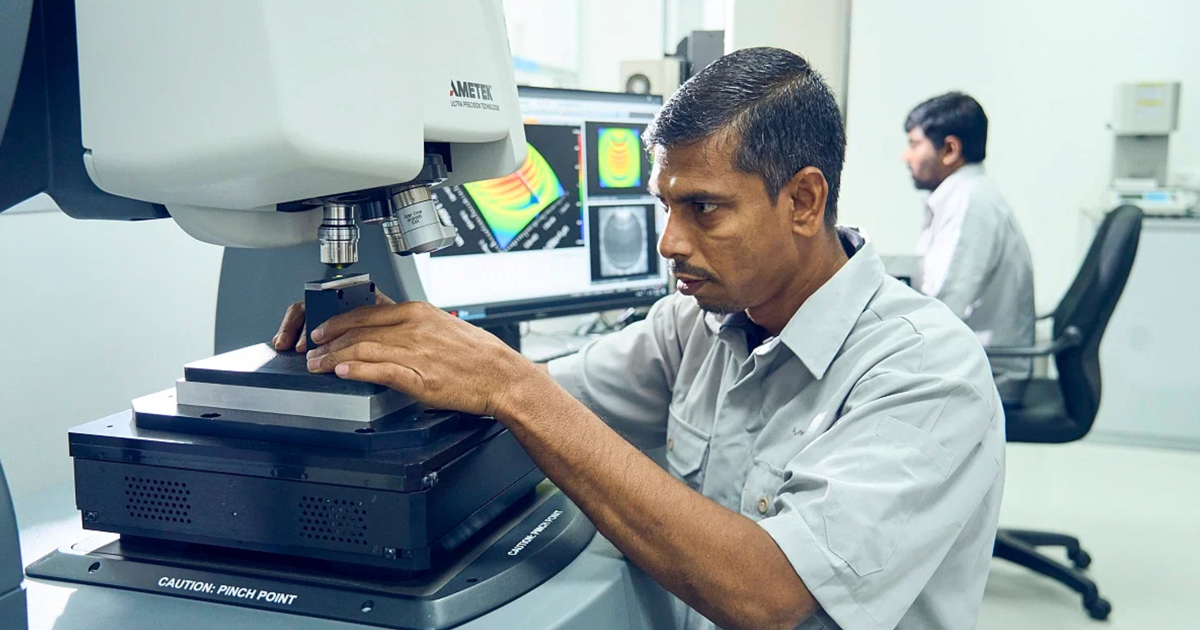
Three years of research and a $5-million investment later, Moveon took the plunge and never looked back. The move has been game-changing, increasing its annual revenue by over 50 per cent and bringing in more end-users. Samsung has even used the company’s nanofabricated components in several smartphone models. Today, nanofabrication makes up about 30 per cent of Moveon’s revenue, with prospects for expansion into autonomous vehicles, Internet of Things and more.
Innovation can be difficult, but Mr Chee emphasises that it is crucial to businesses’ growth and longevity. “If you don’t offer customers new value propositions, you risk being overtaken by competitors who will,” he says.
The company continues to stay on its toes, paying close attention to customers’ needs, attending a wide variety of seminars, exhibitions and events to understand industry trends, and hiring promising new graduates with fresh perspectives and ideas.
A strong focus on R&D
To maintain its competitive edge, Moveon sets aside 30 per cent of its profits for research and development. Its next big bet is on 3D printable optics, which has applications in the booming fields of augmented reality and mixed reality devices. Among other innovations, the firm is creating a machine that customers can use to print optical components such as ophthalmic and prescription lenses.
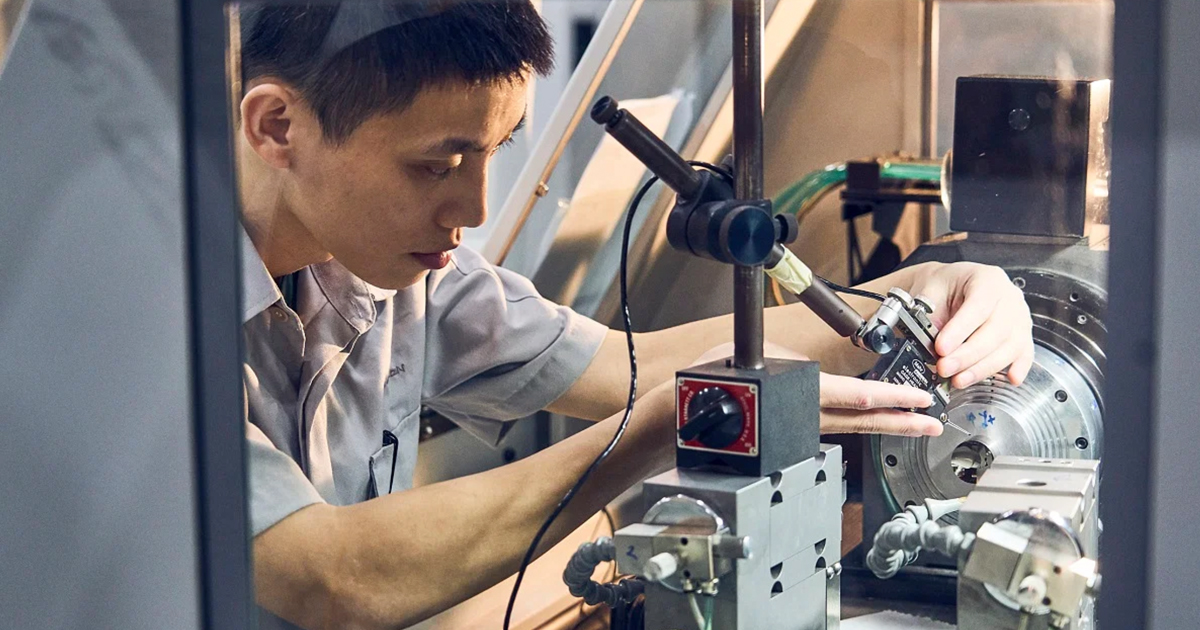
Since 2015, it has also invested in 15 technology start-ups in the optics sectors. A number of these start-ups were introduced to the company during pitch and demo days organised by EnterpriseSG. The start-ups the company invested in are experiencing growth, with two currently valued at over $500 million.
“This is one way that we are future-proofing our business,” explains Mr Chee. “When these start-ups develop and become successful in the market, we can be part a of their supply chain.”
Although not all partnerships or innovation efforts succeed – the firm once took a $2.2 million loss on equipment and other outlays after a partner pulled out of a joint project – they are key if businesses want to survive and grow in the long term, Mr Chee says.
“Many of us are resistant to change and prefer to stay in our comfort zones,” he adds. “However, if you don’t innovate, customers may not want to continue working with you because you are just giving them the same old thing over and over again, even as the industry is evolving. That is why we need to constantly think about what else we can do to stay ahead.”
Enabling innovation and growth
For companies looking to innovate and accelerate market entry, Enterprise Singapore (EnterpriseSG) offers support through a range of initiatives.
Build your capabilities
- Access specialised resources through the Centres of Innovation (COI). Established in partnership with polytechnics and research institutes, they provide resources to firms in sectors like energy, electronics, food manufacturing and the built environment. These include training and advanced facilities to develop and test products, enabling you to reduce time to market and stay ahead in fast-growing industries.
- Get support to tap a pool of experts through the A*Star Tech Access programme, which helps companies adopt advanced manufacturing technologies through consultancy, training and technical advice. It also supports product development costs, enabling firms to prototype and test new products and experiment with technologies.
Explore collaborations
- Link your business with industry professionals, advanced technologies and resources to facilitate growth and innovation through IPI Singapore, a subsidiary of EnterpriseSG. This enables your company to access new markets and uncover opportunities both locally and overseas. Through a global network of partners, IPI Singapore fosters collaborations across various industries and countries.
Find out more about EnterpriseSG’s support for innovation here.
This is part of a series on how home-grown companies are making an impact on global markets, showcasing how they scale up with sustainability, technology and innovation as core aspects of their business, with the support of Enterprise Singapore. Find out more here.

